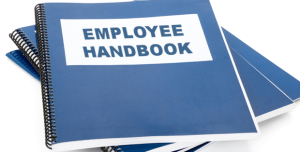April 5, 2017
By James Shrimp

Imagine getting married, legally, on Saturday and then getting terminated by your employer on Monday because of who you married? For members of the LGBT community that is a possibility for which currently there is no, or very limited, legal recourse. But the tide may slowly be changing.
On July 28, 2016, the Seventh Circuit dismissed a sexual orientation claim, ruling that until Congress or the Supreme Court acts, Title VII does not protect against discrimination in the workplace based on sexual orientation. That decision is not remarkable, as all of the Circuit Courts, save the Ninth Circuit, currently share that view. What makes it remarkable is that the Seventh Circuit expressed significant frustration over the current state of the law, explaining why the current jurisprudence on sexual orientation discrimination is cumbersome and unworkable – but adding, that their hands were tied until Congress or the Supreme Court speaks on the issue.
Background
Important to a discussion on Title VII, sexual orientation discrimination, is the Supreme Court’s 1989 decision in Price Waterhouse v. Hopkins. In Price Waterhouse, the Supreme Court held that Title VII, as written, does prevent discrimination based on sex/gender stereotypes, but not sexual orientation. Thus, an employer is not permitted to discriminate against a male employee because he dresses to “feminine” or a female employee that is too “aggressive”, but the employer is permitted to discriminate against an employee because he married another man.
But that begs the question, is not discrimination against a male, because he has a relationship with another male, the violation of a stereotype? This is the seeming lack of logic within the current state of the law.
EEOC Decision in Baldwin
Last year, in a case involving a Federal employee, the EEOC ruled that Title VII prohibits discrimination based upon sexual orientation for a number of reasons, including that “sexual orientation discrimination … is based on gender stereotypes in which employees are harassed or punished for failing to live up to societal norms about appropriate masculine and feminine behaviors, mannerisms and appearances.” The EEOC than criticized Federal courts for trying to distinguish between sexual stereotype and sexual orientation discrimination. However, EEOC decisions do not have the force of law, but this EEOC decision has led to some Federal Courts taking another look at their own sexual orientation discrimination decisions.
The Current Analytical Quagmire
Currently, the Federal Courts recognize claims from LGBT employees who couch their Title VII claims as sexual stereotype claims, not sexual orientation claims. Thus, the law currently sanctions the absurd conclusion that “the law protects effeminate men from employment discrimination, but only if they are (or are believed to be) heterosexuals.” But, if the effeminate man is openly homosexual, the individual has no protection.
Since most instances sexual orientation discrimination have their genesis in the violation of a sexual stereotype the Courts have found the line between sexual orientation and sexual stereotype discrimination difficult to pinpoint and difficult to apply. This is evidenced by the fact that some Courts have disallowed most, if not all, sexual stereotype claims – throwing the baby out with the bathwater.
The Seventh Circuit in its decision concluded that “the distinction between sexual stereotype and sexual orientation claims has created an odd state of affairs in the law in which Title VII protects LGBT individuals, but only to the extent that those individuals meet society’s stereotypical norms about how LGBT men or women look or act.” The Seventh Circuit mused that the current state of the law creates “a paradoxical legal landscape in which a person can be married on Saturday and then fired on Monday for just that act … from an employee’s perspective, the right to marriage might not feel like a real right if she can be fired for exercising it.”
With all of that said, however, the Seventh Circuit concluded that only when Congress or the Supreme Court acts, will sexual orientation discrimination be prevented by Title VII.
Takeaway
It is still Federal law in the vast majority of the United States that there is no protection for sexual orientation discrimination (although most major cities have adopted their own ordinances/statutes providing protection). However, the Seventh Circuit’s decision and analysis reflects a Federal Court system anxious for Congress and the Supreme Court to provide clarity on the bounds of Title VII with respect to sexual orientation. In the meantime, those who are discriminated against based on sexual orientation and the Courts hearing those cases, will continue to split the hairs, presuming any hairs exist in reality, between sexual stereotype and sexual orientation discrimination.
If you have any questions, please contact James Shrimp at 610-275-0700 or via email at jshrimp@highswartz.com.
The information above is general: we recommend that you consult an attorney regarding your specific circumstances. The content of this information is not meant to be considered as legal advice or a substitute for legal representation.



 The High Swartz workers’ compensation defense group recently earned a favorable ruling from the Pennsylvania Commonwealth Court. In the matter of, Edwards v Epicure Home Care, Inc. (Workers’ Compensation Appeal Board), 134 A3d 1156, Pa. Cmwlth Ct 2016, the Commonwealth Court affirmed our client’s use of independent contractors in the context of a workers’ compensation claim.
The High Swartz workers’ compensation defense group recently earned a favorable ruling from the Pennsylvania Commonwealth Court. In the matter of, Edwards v Epicure Home Care, Inc. (Workers’ Compensation Appeal Board), 134 A3d 1156, Pa. Cmwlth Ct 2016, the Commonwealth Court affirmed our client’s use of independent contractors in the context of a workers’ compensation claim.
 The National Labor Relations Board (NLRB) and it’s field offices continue to seek to influence the non-unionized, private sector workplace. Last week, an administrative law judge in an NLRB proceeding involving Quicken Loans, and affiliated companies, Fathead and One Reverse Mortgage, ruled that over 20 provisions of an employee handbook, known as the “Big Book,” violated the National Labor Relations Act. Specifically, the judge ruled that these Big Book provisions violated more than 15,000 employees’ rights to engage in concerted activity.
The National Labor Relations Board (NLRB) and it’s field offices continue to seek to influence the non-unionized, private sector workplace. Last week, an administrative law judge in an NLRB proceeding involving Quicken Loans, and affiliated companies, Fathead and One Reverse Mortgage, ruled that over 20 provisions of an employee handbook, known as the “Big Book,” violated the National Labor Relations Act. Specifically, the judge ruled that these Big Book provisions violated more than 15,000 employees’ rights to engage in concerted activity. 








